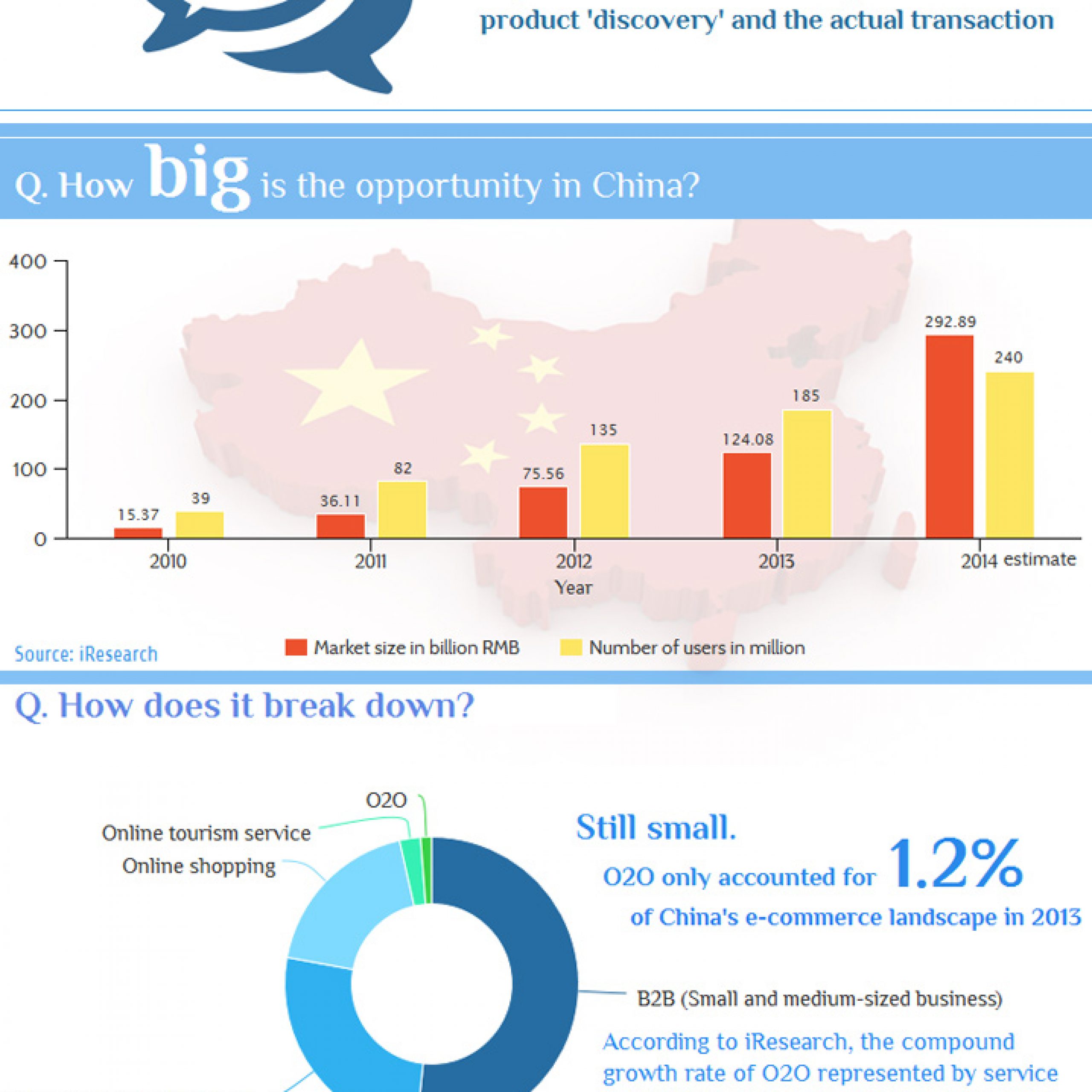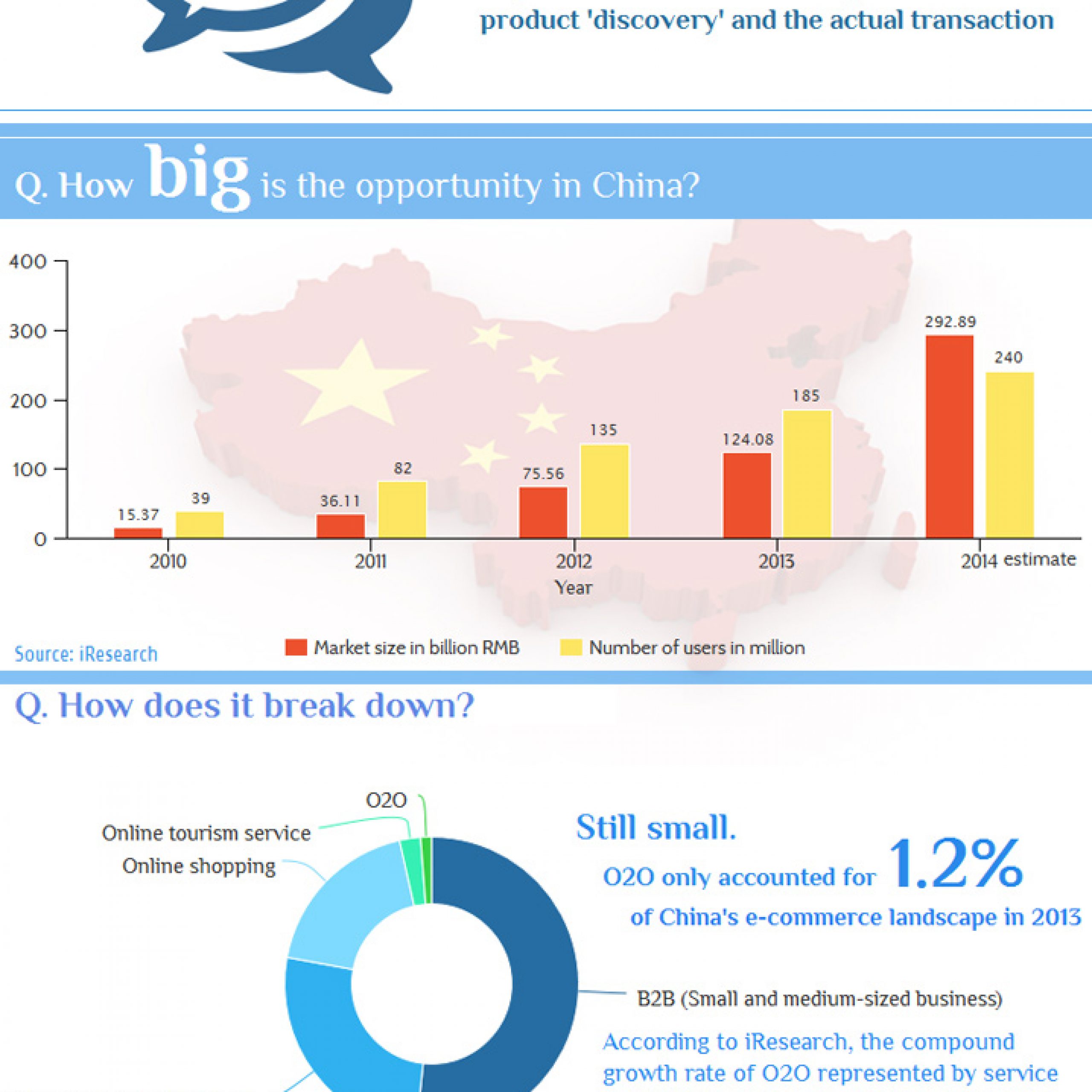Online to Offline commerce, or O2O, is being heralded as the next big thing in China’s e-commerce sector. Why is it so popular and who are the key players?
In August, three of China’s biggest companies—two from the tech and internet space and one from real estate—came together to create an RMB 5 billion ($814 million) e-commerce joint venture. This alliance between Tencent, Baidu and Wanda brought into sharp focus O2O, or Online to Offline commerce, a fast-growing area in China’s rapidly evolving e-commerce business.
In simple words, O2O or Online to Offline commerce is about directing online users to physical stores. The term O2O was first coined by Alex Rampell, CEO and founder of TrialPay, in a 2010 TechCrunch article. He wrote: “The key to O2O is that it finds consumers online and brings them into real-world stores. It is a combination of payment model and foot traffic generator for merchants (as well as a ‘discovery’ mechanism for consumers) that creates offline purchases.”
Globally, O2O has given rise to businesses like Groupon and LivingSocial. Brick and mortar retailers like Nordstrom and Walmart have also evolved O2O models to help combat the ill-effects of ‘showrooming’, wherein customers come to the store to just look at the product and go back home and buy it online.
The opportunity in O2O in China is still small, but it is growing rapidly. We put together this infographic to help you understand this space a little better.





















